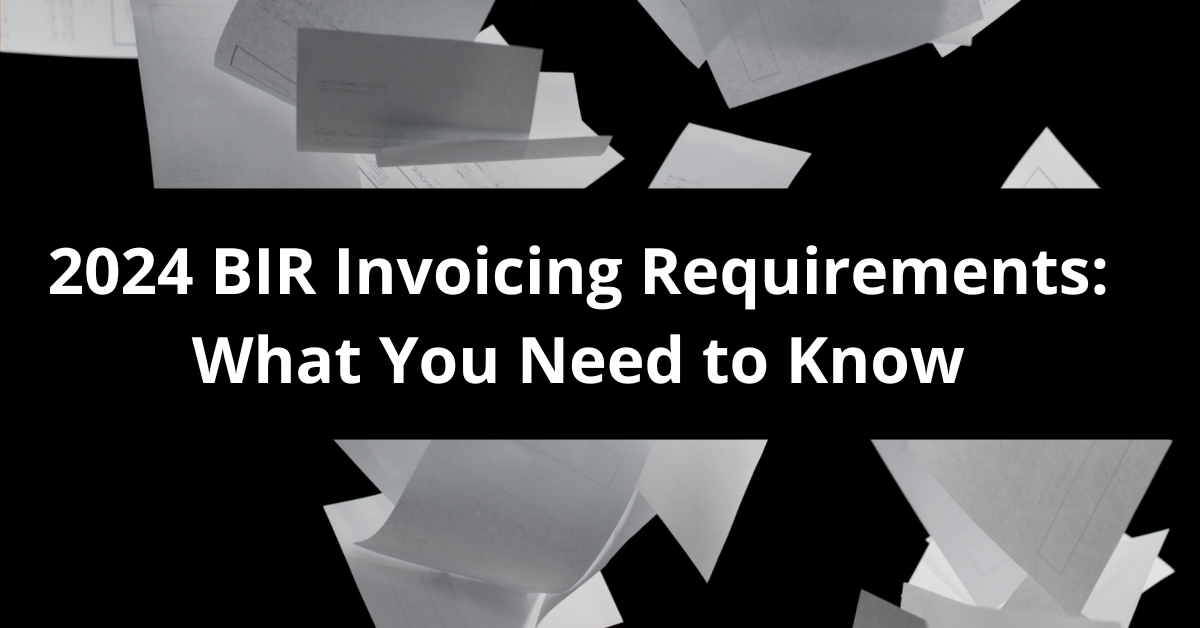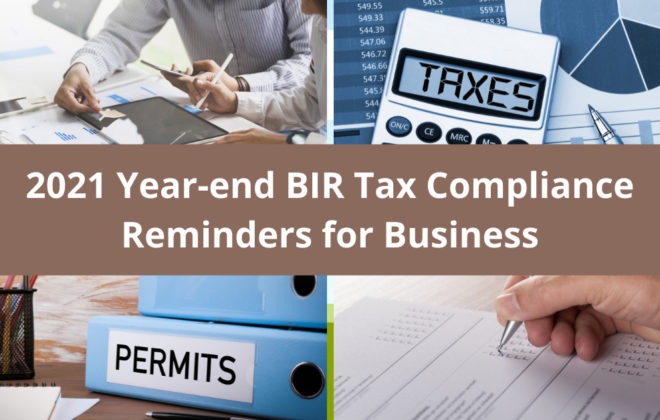2024 BIR Invoicing Requirements: What You Need to Know
The BIR remains committed to helping taxpayers understand and adjust to the changes brought about by the Ease of Paying Taxes (EOPT) Act. The Bureau released several RMCs, guidelines, and advisories to help clear up any confusion or worries that our taxpayers may have.
One of the recent regulations issued by the BIR is Revenue Regulations (RR) No. 11-2024, which extends the deadlines for complying with the new invoicing requirements under the EOPT Act. Here are some of the key features of this regulation:
Unused Official Receipts (ORs)
- Taxpayers may continue the use of the remaining ORs as supplementary documents until fully consumed, provided that the phrase “THIS DOCUMENT IS NOT VALID FOR CLAIM OF INPUT TAX” is stamped on the face of the document.
- Taxpayers are allowed to convert Official Receipts into Invoices and Billing Statements, Statements of Account, and Statements of Charges into Billing Invoices. They are allowed to use these converted ORs or Billing Statements until fully consumed.
However, the converted Invoices or Billing Invoices must contain the following required transaction information: quantity, unit cost, and description or nature of the service.
- The converted Invoices or Billing Invoice may be considered valid for claiming of input tax and proof of both sales transactions and payments at the same time until they are fully consumed, provided that there is no missing information as enumerated under Sec. 3(D)(3) of RR No. 7-2024.
- Any manual or looseleaf “Official Receipt” issued without a stamped “Invoice” will be considered supplementary documents and ineligible for input tax claims.
- The stamping of converted Invoices or Billing Invoices does not require approval from the Revenue District Offices.
- Taxpayers are required to report to the RDO the inventory of converted unused Official Receipts, Billing Statements, Statements of Account, and Statements of Charges, indicating the number of booklets and corresponding serial numbers, on or before 31 July 2024.
Cash Register Machines (CRM) and Point-of-Sales (POS) Machines and E-receipting or E-Invoicing Software
- Taxpayers using Computerized Accounting Systems (CAS) and Computerized Books of Accounts (CBA) with Accounting Records (AR) are given until December 31, 2024, or possibly an additional six months, subject to the approval of the concerned Regional Director, to reconfigure their systems to comply with the new regulation.
- During the system’s reconfiguration process, taxpayers are allowed to use Official Receipt bearing the word, “Invoice” from April 27, 2024 until the completion of machine or system enhancement without the need to inform the RDO of such change.
- These invoices issued while the software is being reconfigured may be considered valid for claiming input tax by the buyer or purchaser until 31 December 2024 or until the completion of the machine/system reconfiguration/enhancement, whichever comes first, provided that the required information under Section 3(D)(3) of RR No. 7-2024 is complied with.
Navigate Tax Compliance with Ease
By staying informed and following the BIR’s guidance, taxpayers can navigate these changes in invoicing requirements with confidence. Remember to report any unused Official Receipts by the set deadline and ensure your systems are updated to comply with the new rules.
With the BIR’s support, you can manage your tax responsibilities effectively and take advantage of the benefits offered by the EOPT Act.
Should you need assistance with these invoicing requirements, our team at DJKA Business Services would be happy to assist you. Just email us at info@djkaaccounting.com for more information.
Recent Posts
- New Features and Functionalities of the Online Registration and Update System (ORUS)
- A Comprehensive Guide to Taxation for Freelancers in the Philippines
- New Tax Laws in 2024: What Changes Filipino Taxpayers Should Prepare For
- How to Avoid Common Tax Mistakes in 2024
- Tax Deductions and Benefits Often Overlooked by Filipino Taxpayers





